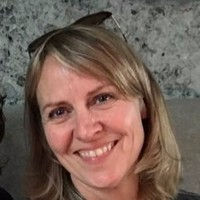Danish Embassy in Canada
- Hilde Huus
- Jun 9, 2025
- 3 min read

Photo of Ambassador Harris courtesy of the Danish Embassy
His Excellency Nikolaj Harris, Ambassador of Denmark, set the tone for his May 23 talk by recognizing the role that individuals with Nordic backgrounds play as ambassadors for our respective countries of origin. I found this to be quite an inspiring thought and one that validates the existence of the Canadian Nordic Society, whose mission is to celebrate the links and common interests of Canada and the Nordic countries!
This year is a “diplomatic super year” for Denmark for several reasons, the Ambassador noted. It is a member of the United Nations Security Council in 2025-2026. On July 1, it will assume the presidency of the European Union. On May 12, Norway passed the gavel of the Arctic Council to Denmark. And Denmark’s Prime Minister Mette Frederiksen currently chairs the Nordic-Baltic Eight, a regional co-operation format that includes Denmark, Estonia, Finland, Iceland, Latvia, Lithuania, Norway, and Sweden.
(Note that the chair of the Arctic Council is now Greenland’s foreign minister, Vivian Motzfeldt. The Guardian published an interesting article recently in this regard: https://www.theguardian.com/world/2025/may/12/norway-arctic-council-leadership-ukraine-trump-greenland)
The Ambassador went on to describe the challenges Canada and Denmark both face in our current political climate. Like Canada, Denmark supports Ukraine. In fact, Denmark is the country that provides the largest per capita spending towards Ukraine, and is the fifth largest donor overall. The Danish model of financing military production in Ukraine itself, rather than production elsewhere, is now being followed by Canada.
The first separate Defence Attaché for Denmark in Canada was accredited in February 2025. Up until then, the Defence Attaché for Denmark in the United States also held the responsible for Canada. There are currently ten Danish consular staff in Toronto who work with their colleagues in the United States on trade sector co-operation, in particular in the energy sector, with a focus on wind turbines, and in the pharmaceutical and health sectors.
NATO has taken on more importance recently and the Ambassador noted that the addition of Sweden and Finland to NATO has meant that dialogue between the Nordic countries has become easier.
Ambassador Harris’s remarks led to some keen questions regarding the role of the United States in NATO and Greenland, which he responded to with frankness. The United States is crucial to the existence of NATO in its current form and the independence and sovereignty of Greenland are not in question, but concerns about its security are understandable and open for discussion and accommodation.
Helle Dallum then spoke about her role in Canada as one of eight Danish health diplomats worldwide. Her focus is on strengthening the collaboration between our two countries’ health systems. She gave a brief overview of Denmark’s health system, which has three levels: the national level, the regional level, and the local level. Elder care and home nursing are handled at the local level and hospitals at the regional level.
Denmark is reforming its health care system, which has become too expensive to maintain in its current form. Hospital care in particular is very costly, so the government wants to put more investments into primary care and is aiming to reduce the number of hospital referrals. There is a new focus on changing people’s expectations while making sure they still get the right treatment, with an emphasis on self-management.
With regard to eldercare, Denmark prioritizes living at home for as long as possible. Public funding is available to those who need home care, including personal care (such as bathing), practical care (such as house cleaning), and food service.
Denmark’s nursing homes try to provide person-centred care that preserves the person’s individuality and a sense of home. Personal well-being and health-related care are priorities. The aim is to maintain each individual’s integrity and values as they age.
The new Danish eldercare reform has three main themes: self-determination for the elderly; trust in eldercare employees and management; and close interaction with the elder’s relatives, local community, and civil society. The intent is for elders to have choices so they receive what they, as individuals, want and need. “You’re never too old to have a good life” she concluded.
Ms Dallum was happy to respond to a number of questions about eldercare in Denmark and how it could inspire better eldercare in Canada.

(Photo courtesy of Marian McLennan)




Comments